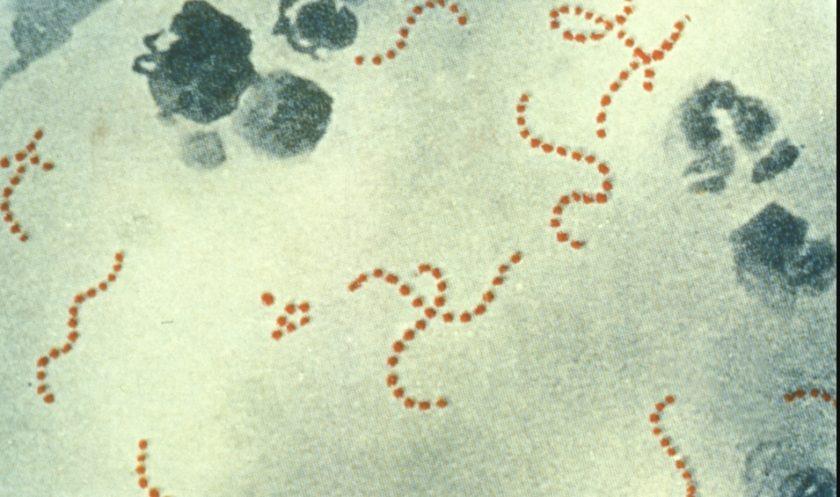Strep A: Public Health Wales frequently asked questions

There has been an increased number of cases of Group A streptococcus (strep A) compared to normal at this time of year.
Strep A is a bacteria that many people carry without any symptoms.
It can be spread to others through close contact and through coughs and sneezes.
Where people do develop symptoms, they are typically quite mild, such as the common childhood disease known as scarlet fever.
In very rare occasions, the bacteria can get into the bloodstream and cause an illness called invasive Group A strep (iGAS).
Very rarely and particularly if an individual has other health issues or is co-infected with another infection at the same time, such as chickenpox or a respiratory virus, the Strep A bacteria can get into the bloodstream.
This is then known as invasive Strep A disease and can result in a tragic outcome, especially if not treated quickly.
Sadly nine children throughout the UK have died as a result of severe complications from strep A.
Nobody knows for sure why more children than usual have died due to strep A this year, but increased mixing and viral infections may be factors.
The high number of cases of this common bacterial infection circulating at the same time as a range of winter respiratory infections has, could have resulted in increased numbers of the rarer and more serious invasive Strep A disease.
Early signs of the more serious invasive Strep A disease include a high fever, severe muscle aches, local muscle tenderness, or redness at the site of a wound.
Parents are advised to contact their GP or get medical advice straight away if they think their child has any of the signs and symptoms of invasive Strep A disease.
Pharmacies
Demand for penicillin and amoxicillin has increased in recent days as the number of cases of strep A has risen among children in schools.
The Welsh government said yesterday that some pharmacies were reporting shortages of stock.
But said, ”we are confident suppliers are working to address any issues.”
“Should people have difficulty in obtaining their prescription they may need to visit different pharmacies or in some cases ask their GP to prescribe an alternative treatment.” The health minister Elunued Morgan said in a statement.
Public Health Wales has put together a number of frequently asked questions:
What is Strep A, Scarlet Fever and iGAS?
- Group A streptococcal (GAS) infection is a group of bacteria which causes infections in the throat and skin.
- Scarlet fever is a contagious infection caused by Group A streptococcal infection that mostly affects young children. It’s easily treated with antibiotics.
- Sometimes severe GAS disease may occur when bacteria get into parts of the body where bacteria are usually not found, such as the blood, muscles or the lungs. These infections are known as invasive Group A Streptococcal disease (iGAS) and may include serious conditions, such as toxic shock syndrome.
Why does invasive Group A Streptococcal disease occur?
Invasive GAS infections occur when the bacteria get past the defences of the person who is infected. This may occur when a person has sores or other breaks in the skin that allow the bacteria to get into the tissue, or when the person’s ability to fight off the infection is decreased because of chronic illness or an illness that affects the immune system.
Why are we seeing an increase in cases of Scarlet Fever and iGAS?
We are seeing an increase in cases of Scarlet Fever this year and it is presenting itself earlier than normal. This is likely to be as a result of children being more isolated during the Coronavirus pandemic, and now being back in social settings more frequently. Increases in cases of Scarlet Fever may result in more cases of the far rarer iGAS.
Should I be concerned?
While we understand that parents are likely to be worried by reports they are seeing related to iGAS, cases of invasive group A streptococcal infection (iGAS) remain rare in Wales, and children have a very low risk of contracting the disease.
In most cases, infection with streptococcal A bacteria causes scarlet fever, usually a mild illness.
Cold and flu like symptoms are very common at this time of year, especially in children. Most children with these symptoms will have a common seasonal virus, which can be treated by keeping the child hydrated, and with paracetamol.
Some children with cold and flu like symptoms – sore throat, headache, fever – may be experiencing some of the early symptoms of scarlet fever, which also circulates at this time of year. These children will go on to develop scarlet fever specific symptoms, including a fine pink-red rash that feels like sandpaper to touch, and parents should contact their GP if they see these symptoms.
While scarlet fever is more concerning than a common cold, it is still usually a mild illness from which most children will recover without complications, especially if the condition is properly treated with antibiotics.
In very rare cases, group A streptococcal infection can cause iGAS, a rare complication which affects fewer than 20 children in Wales each year. Although iGAS is a worrying condition, the majority of these children will recover with proper treatment.
The best thing that parents can do is to provide the care they would usually provide for a child with cold and flu like symptoms, but to familiarise themselves with the symptoms of scarlet fever and iGAS as a precaution
What are the symptoms of scarlet fever?
The symptoms of scarlet fever include a sore throat, headache, fever, nausea and vomiting. This is followed by a fine red rash, which typically first appears on the chest and stomach, rapidly spreading to other parts of the body. Older children may not have the rash.
On more darkly pigmented skin, the scarlet rash may be harder to spot, but it should feel like ‘sandpaper’. The face can be flushed red but pale around the mouth.
What should parents do if their child is showing symptoms of Scarlet Fever?
Parents who suspect their child has symptoms of scarlet fever are advised that they should:
- See their GP or contact NHS 111 as soon as possible
- Make sure their child takes the full course of any antibiotics prescribed by the doctor
- Keep their child at home, away from nursery, school or work and follow any guidance provided by their GP on how long they should remain absent from these settings.
What are the symptoms of iGAS?
- Fever (a high temperature above 38°C)
- Severe muscle aches
- Localised muscle tenderness
- Redness at the site of a wound.
What should I do if my child is showing symptoms of iGAS?
Parents are being advised to contact their GP or get medical advice straight away if they think their child has any of the signs and symptoms of iGAS disease.
- Contact their GP, visit 111.wales.nhs.uk, or call NHS 111 Wales
- Make sure their child takes the full course of any antibiotics prescribed by the doctor
- Keep their child at home, away from nursery, school or work and follow any guidance provided by their GP on how long they should remain absent from these settings.
- Find up-to-date information and advice on streptococcal A infections at 111.wales.nhs.uk
Spotted something? Got a story? Send a Facebook Message | A direct message on Twitter | Email: [email protected]
Latest News









